Student-Led Ventures Win $5,000 Entrepreneurship Seed Grants
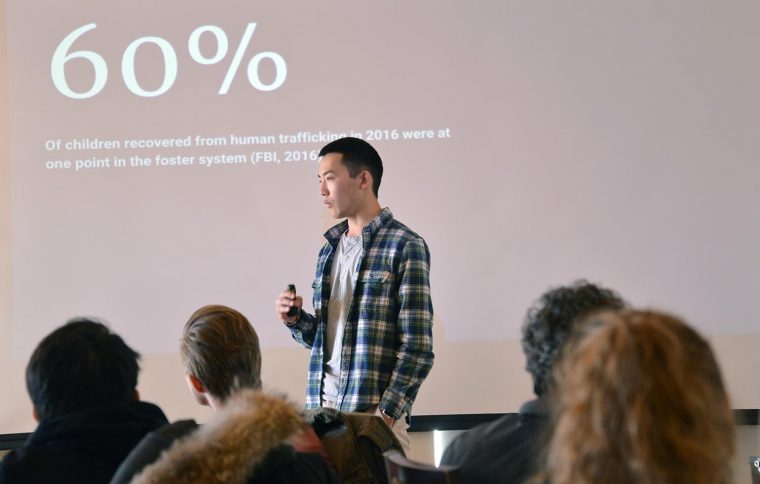
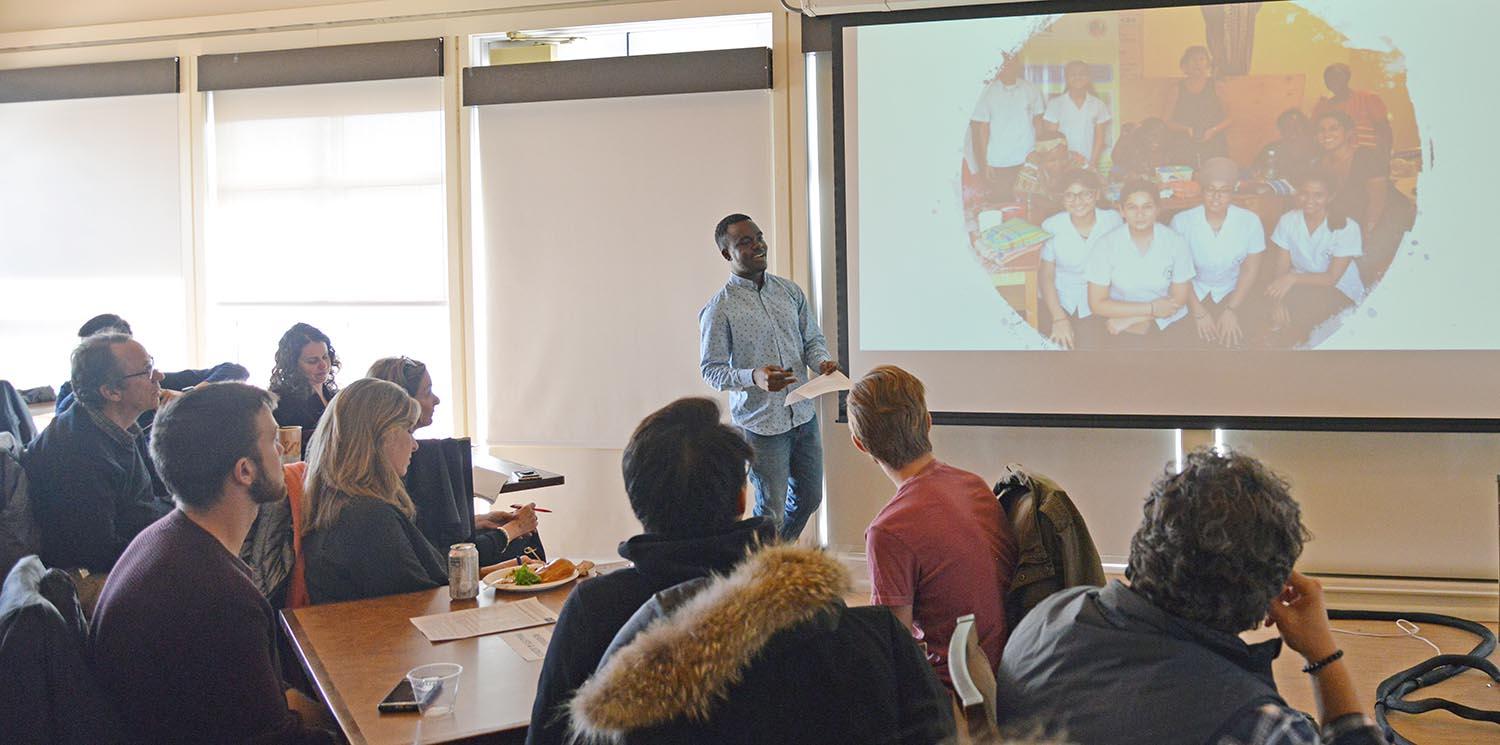
On March 4, not three, but four student-run ventures received $5,000 seed grants from the Patricelli Center for Social Entrepreneurship (PCSE). The unrestricted funding is accompanied with training, advising, mentoring, incubator workspace, and other resources from the Patricelli Center.
On March 1, six finalists pitched for a panel of judges in Allbritton 311.
“As always, the competition was steep, and the judges had a tough time selecting grantees,” said Makaela Kingsley ’98, director of the Patricelli Center for Social Entrepreneurship. “In fact, this year they decided to make a special donation to the Patricelli Center so we could offer four grants instead of the usual three.”
These $5,000 awards are intended to fund the launch or early stage growth of a social enterprise, project, program, or venture. Projects or ventures must address a social problem; be sustainable, scalable, and/or replicable; and have a potential for impact. Entries can be for-profit, nonprofit, hybrid, or have no legal structure.
“This program is all about giving students a chance to develop and test their leadership skills and their ideas for social change,” Kingsley said. “Wesleyan’s mission is to ‘offer an education characterized by boldness, rigor, and practical idealism,’ and programs like the PCSE Seed Grant embody that mission and help students turn theory into practice.”
The 2019 PCSE Seed Grant recipients are:
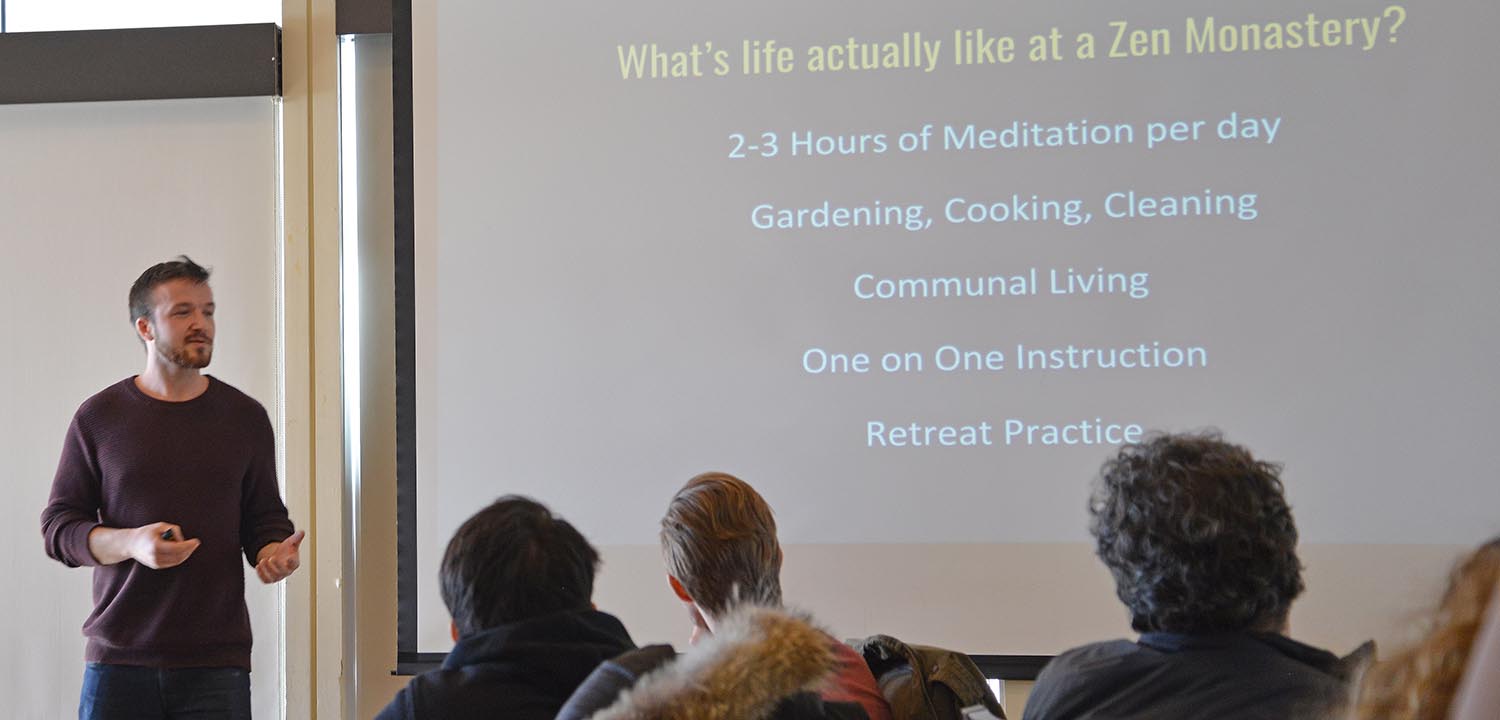
Dharma Gates
Aaron Stryker ’19, Miles Bukiet ’11, Nicholas Antonellis ’17
Dharma Gates offers a semester of intensive training at a Zen monastery in the US, bridged by workshops on compassionate activism, contemplative neuroscience, and Buddhist environmentalism. The curriculum is designed to train a generation of compassionate leaders and offer an affordable alternative to traditional gap-year programs.
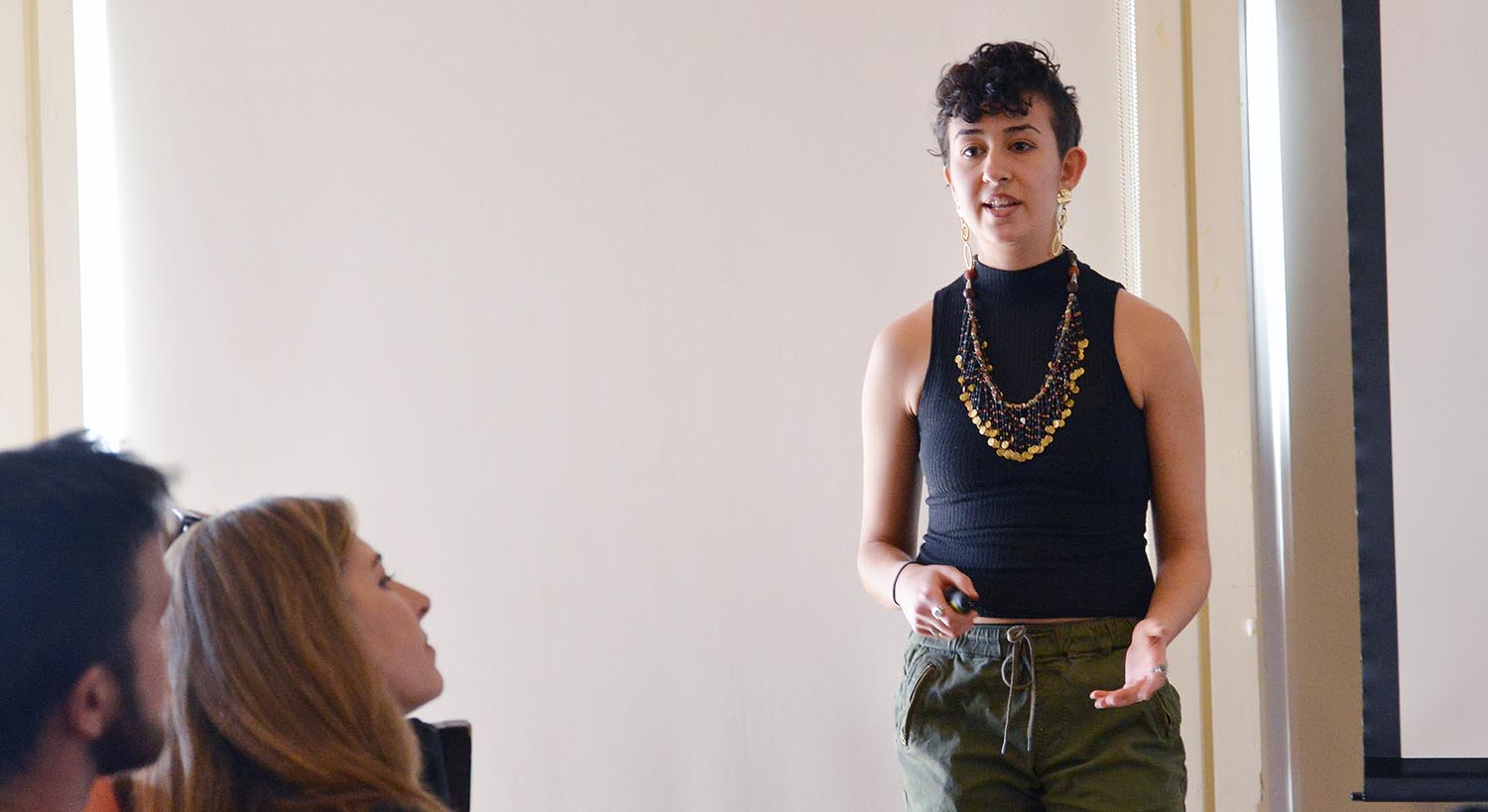
Downstream Podcasting
Alli Fam ’19, Ben Saldich ’19, Isaac Price-Slade ’19
Downstream podcasting aims to diversify the podcasting industry in terms of teams and content by providing workshops for underrepresented students and the opportunity for these students to work on Downstream’s own podcast series, Act Local, Be Vocal. The series highlights the work of local activists and nonprofits, allowing them to reach potential donors, volunteers, and people who can benefit from their services and message with greater ease.
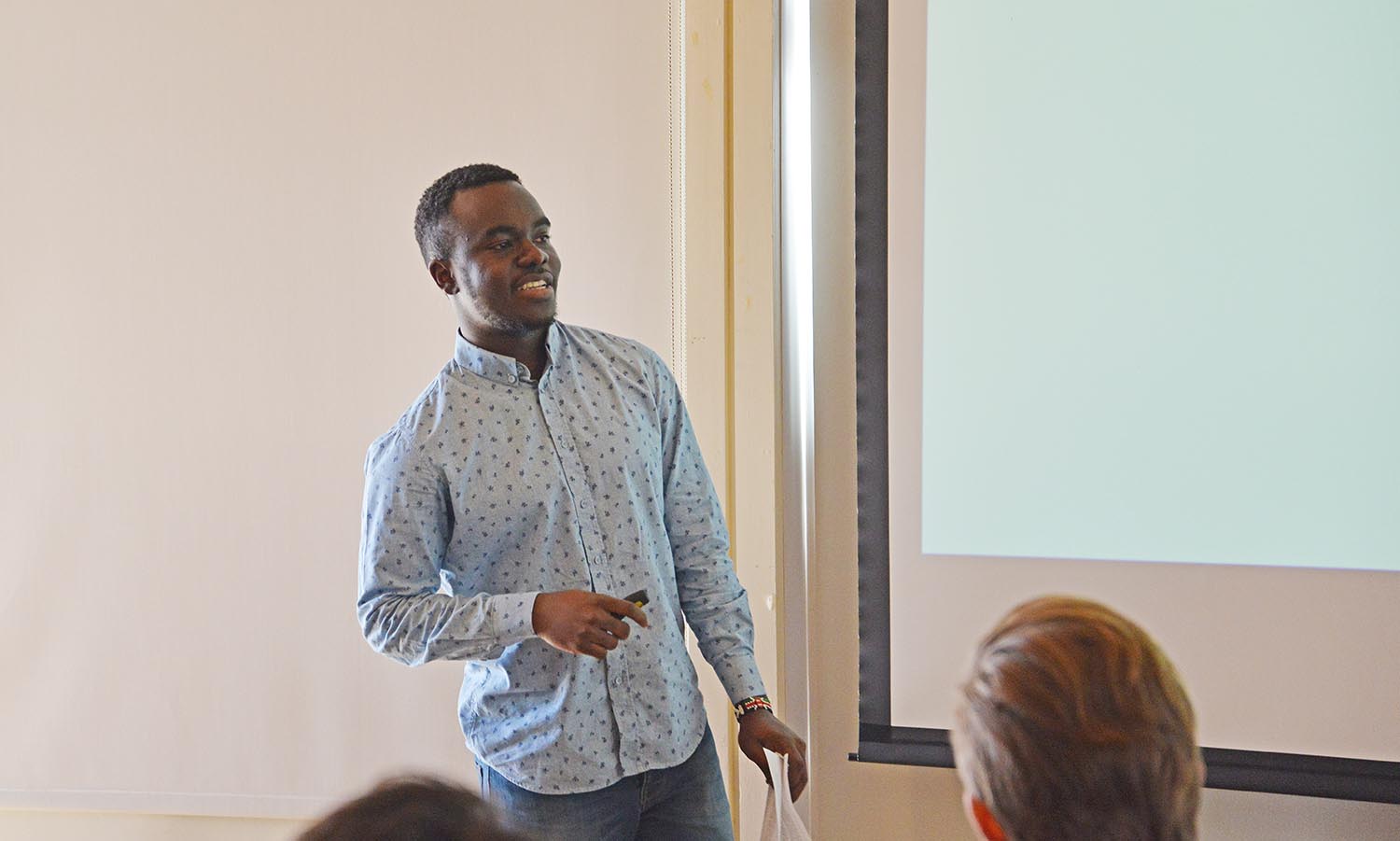
Accessible and Affordable Sanitation for Women
Sydney Ochieng ’22 and Ziyaan Virji (Aga Khan Academy Mombasa)
AASW is a student-run initiative that seeks to increase access to proper sanitation for young schoolgirls in Mombasa, Kenya. AASW empowers girls globally to self-produce their own menstrual materials sustainably and aims to break down the social stigma of menstruation locally. Its goal is to provide a safe, cost-effective, eco-friendly, and long-lasting alternative for menstrual care.
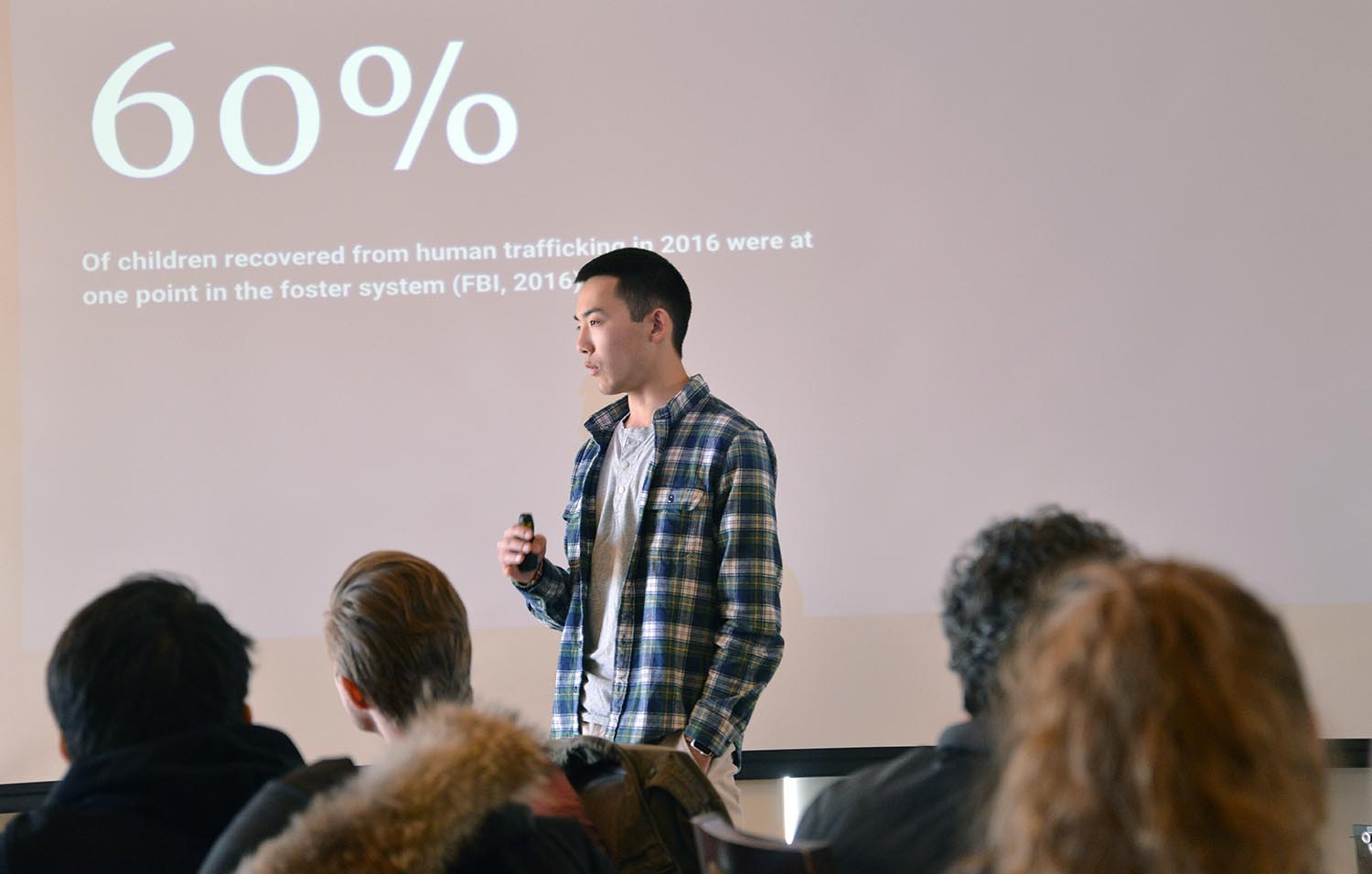
Foster Care Support Project
Luke Lezhanskyy ’20, Katerin Osorto ’20, Ruby Lu ’19, Angela Duong ’21
The Foster Care Support Project (FCSP) is an effort to support and empower foster children of all ages by connecting them with students and young adults. Their work is guided by an ambitious goal — to ultimately reach all of Connecticut’s foster children.
Other 2019 PCSE Seed Grant finalists are:
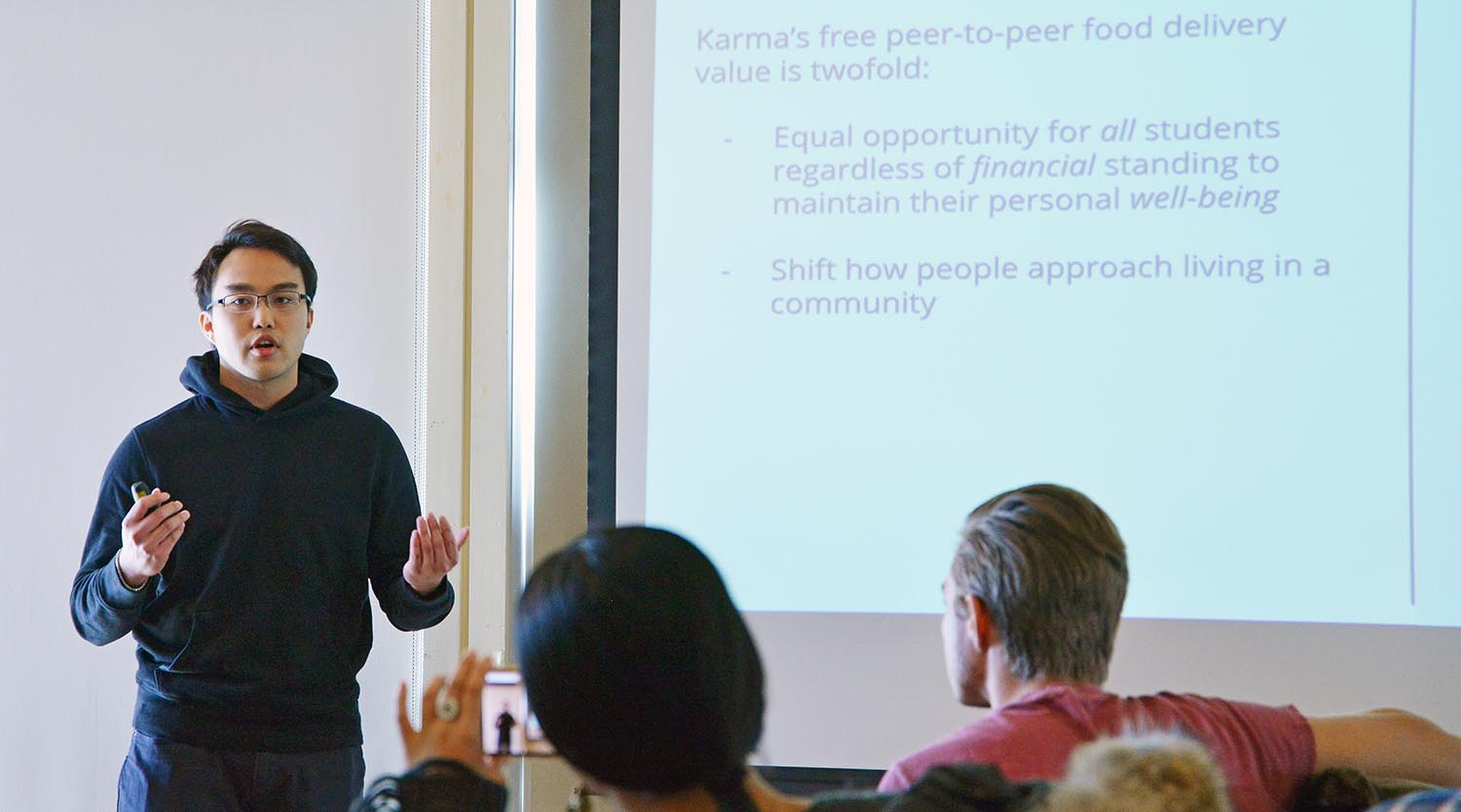
Karma
Zhi Gan ’18, Timothy Kim ’18, Seong Son ’18, Yuhan Wang ’19, Dashiell Halpern ’20, Jonathan Goldman ’20
Karma is a mobile app that captures hidden productivity in the world around us by connecting college students who share common geographical tasks. The platform uses a combination of a pseudo currency and a method of gamification to create a barter system that allows for free peer-to-peer delivery between students.
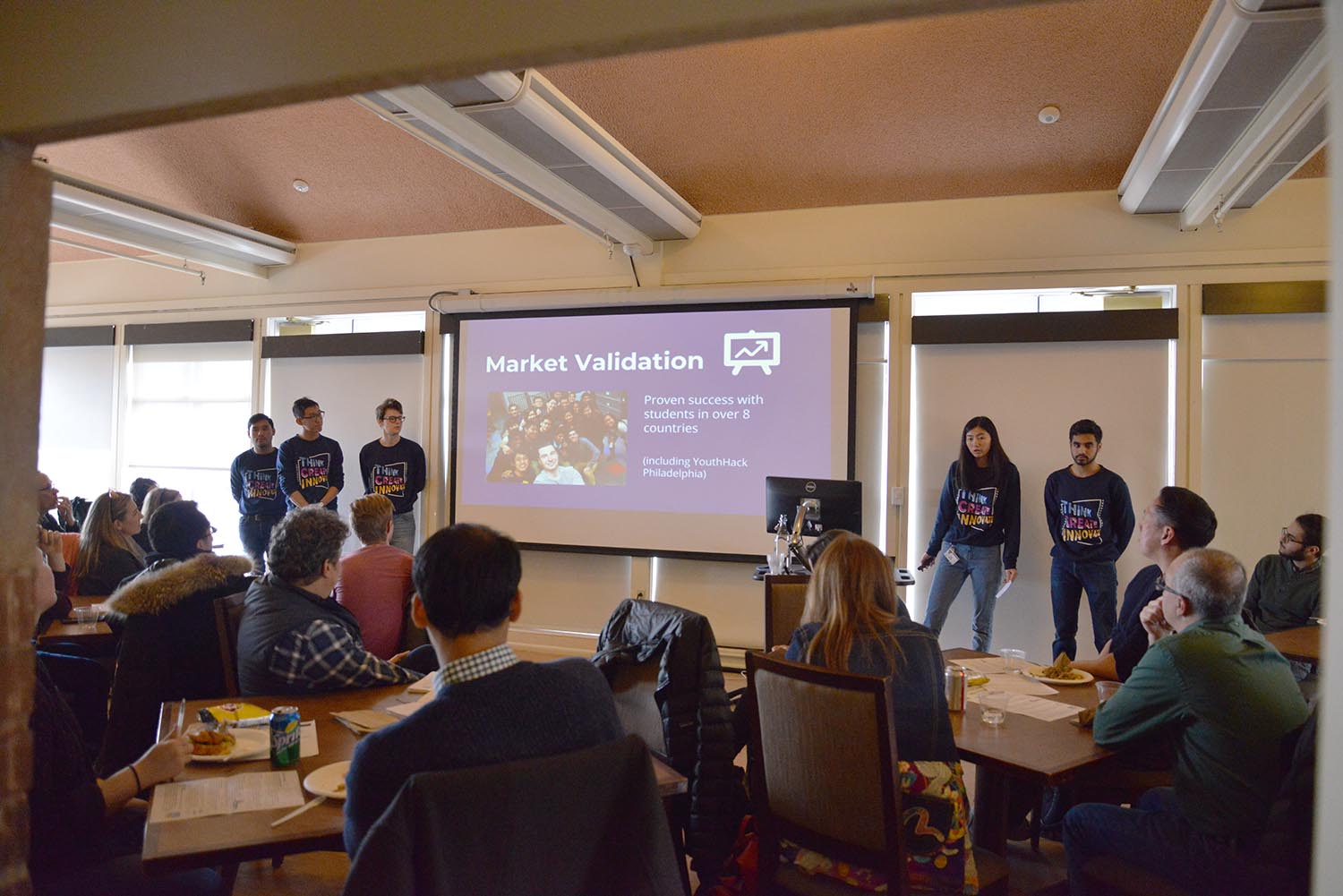
YouthHack Connecticut
Philippe Bungabong ’22, Chunyue Ma ’22, Nick Franczak ’22, Natasha Wong ’22, and Roshaan Siddiqui ’22
YouthHack Connecticut aims to empower high school and university students in Connecticut to translate their education into action by using emerging technologies, innovative thinking, and start-up culture as tools in solving societal problems. Through a variety of educational events, workshops, and programs, it aspires to make Connecticut a prominent hub for entrepreneurship and technological innovation—one idea at a time.
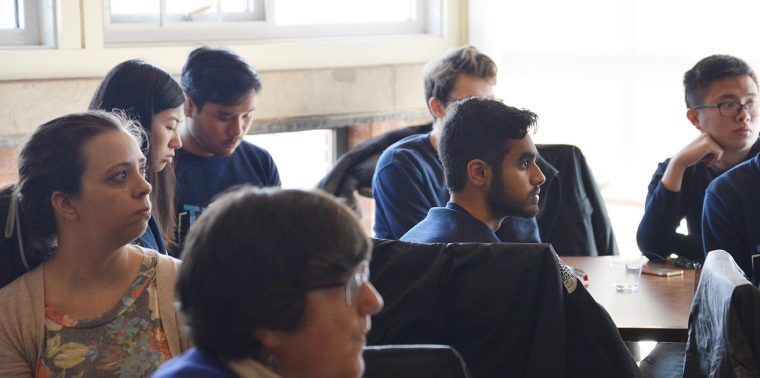
The 2019 judges include:
- Marcus Chung ’98, head of sourcing at Stitch Fix
- Syed Ali ’13, urban planning graduate student at Harvard University
- Sara Crawley ’83, campaign analyst at Blackbaud
- Lexy Funk ’91, cofounder and CEO of Brooklyn Industries
- Irma Gonzalez ’78, P’09, principal of Zoen Resources
- Dan Gregory ‘78, P’09 director of Northeastern IDEA
- Lily Herman ’16, digital writer, editor, and strategist for Founder of Rogue Sunday and Get Her Elected
- Rachel Hines ’82, P’18, board chair of TechnoServe; board member of Sesame Workshop; venture investor of Plum Alley
- Gayle Northrop P’22, lecturer and faculty advisor for the UCLA Anderson School of Management; principal and president of Northrop Nonprofit Consulting
- Ferdinand Quayson ’20, founder and CEO of Young Achievers Foundation Ghana; 2018 Seed Grant recipient
- David Salinas, founder and chairman of District Innovation and Venture Center; cofounder of Digital Surgeons
- David Sonnenberg P’19, ’20, copresident/co-COO at Hunter Douglas; board member at Nalanda Institute of Contemplative Science
- Deborah Sonnenberg P’19, ’20, board member at Riverdale Country School and Nalanda Institute of Contemplative Science
- Melinda Weekes-Laidlow, Esq. ’89; president of Weekes In Advance Enterprises; founder/CEO of Beautiful Ventures; former managing director or Race Forward
- Joe Weinstein ’97, senior partner at the Global Social Enterprise Initiative, Georgetown University McDonough School of Business
- Andy Weissman ’88, P’21, managing partner at Union Square Ventures
- Sarah Williams ’88, P’21, cofounder of Propel Capital
Past grantees used this seed funding to help students chase their dreams, innovate tourism in Thailand, provide college access to students in Appalachia, reduce bottled-water consumption on college campuses, bridge the digital divide in the Philippines, reimagine women’s reproductive health care, normalize consent, and much more. All have reported on their progress here.
The pitches were open to the public, and recordings will be available on the Patricelli Center website later. For more information email engage@wesleyan.edu.

